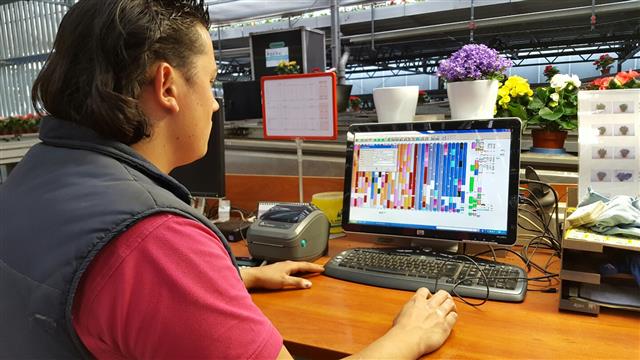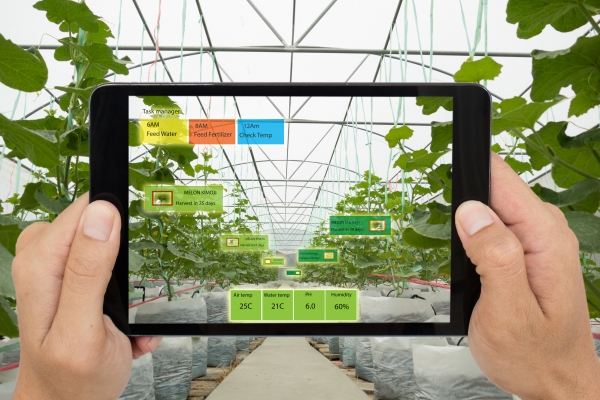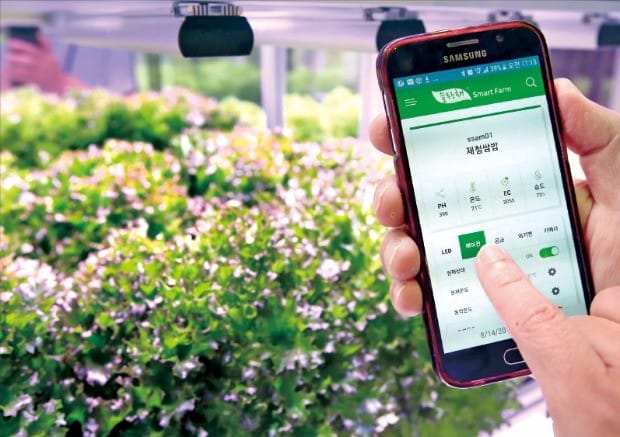List
Story > NEWS > Detail
[Resources] Overseas Smart Farm and Shared Economy – Netherlands
The Netherlands, where facility agriculture has developed, is leading the global smart farm market with strong government support and active participation by businesses and individuals. It is making efforts to achieve improvement in production and optimization of quality by utilizing accumulated agricultural data and know-how optimized for the cultivation environment in the development of smart farm sensors and control solutions. Priva, a smart farm greenhouse solution company, has developed a greenhouse environment control system and exports it to countries around the world. Hortimax has advantages in terms of cultivation technology, such as controlling both liquid supply and horticulture facilities, and minimizing temperature deviation by using accumulated weather information.
Lally, which controls more than 65 percent of the world's market for milk-producing to managing, has shown the saving of time and labor by automating the whole process of milk production to management. In addition, data from milk production to quality control are collected, utilized, and health measurements and customized care by cows are carried out with an automatic milk formula system. The Agreport A7 is a large state-of-the-art glass greenhouse complex built on 20,000 ha wide reclaimed land, with only 1,000 hectares of land for glass greenhouses. Currently, a total of 10 farms are housed here, with each building a glass greenhouse with an average capacity of 50 to 100 hectares and growing crops on a large scale. Barenze DC, a paprika and tomato grower, has a total size of 47 hectares. Sensors in all areas of the greenhouse are used to increase productivity by maintaining the optimal conditions for crops to grow based on the temperature, humidity, lighting, moisture and nutrients inside the greenhouse. Various sensors and controllers will automatically recognize the size and color of paprika and classify it at selected work sites. It can also control the cultivation environment and manage energy and labor through computers and smartphones.

Dutch smart farms, like Bahrain DC, are massively growing several crops such as paprika, tomatoes and cucumbers, which are both in demand and value-added agricultural products in the export market, as they focus on exports due to the small domestic market. A leading company in Dutch floriculture, which is introducing smart farms, is the Flute Professional, which operates a flower growing greenhouse. With fewer rural workers and higher labor costs, the government introduced smart farms to reduce production costs and boost profits. It said it posted about 6 billion won in sales in 2016. Vestland, a representative home for fruits and vegetables, is a package from harvest to classification and packaging. The hot water pipes at the bottom of the greenhouse are automatically packed with a certain amount of color, size and weight when the crops are transported and transported to the screening site, as well as rails for transporting goods. Packaged items are piled up in separate-size palettes and shipped to the auction house, all of which are automated.

IT adoption in the livestock industry is also on the rise, and the reason why smart farm technology is promising is that it can not only boost output in a sustainable way, but also lead to better welfare of livestock. Using electronic sensors and automated monitor systems, the health status of livestock can be measured and the growth process can be observed. This is very valid in that it can allow farm owners to quickly cope with problems with livestock. The nationwide IoT network, established by Dutch carrier KPN in 2016, facilitates the exchange of information between smart farm devices. Data collection through sensor devices is key to smart farm technology, with telecom operators T-Mobile and Vodafone also set to launch Internet of Things network in 2017. The Netherlands is building a smart farm backed by the government and led by farmers and businesses. Despite the lack of optimal climate conditions for horticulture and flower crops, the Netherlands has long become a powerhouse in exporting agricultural products by using glass greenhouses, and has built up experience knowledge related to various agricultural crops through underwater cultivation, and has made good use of them in conjunction with smart farms, which are facility agriculture.

Recently, smart farm technology has been in operation in some regions in South Korea, which can check and control agricultural information such as the temperature and humidity of greenhouses. Expectations are also rising on how Korea's ICT (Information Communication Technology) will be integrated with flower and horticultural industries. Currently, Korea's smart farm industry or smart farming business can be seen as a starting stage compared to the U.S., Japan and Europe, but if it has developed well through integration with ICT (Information Communication Technology) in Korea, its potential is expected to be very high. In addition, the advent of smart farms should not threaten or collide with the existing farmers' markets with the dog feet of various smart farming business models. Smart farming businesses based on smart farms should be able to generate more value, and the value created should be distributed not only to participants in the value chain, but also to stakeholders in the value chain, and should be able to realize its value economically, socially and ethically.
The Netherlands, where facility agriculture has developed, is leading the global smart farm market with strong government support and active participation by businesses and individuals. It is making efforts to achieve improvement in production and optimization of quality by utilizing accumulated agricultural data and know-how optimized for the cultivation environment in the development of smart farm sensors and control solutions. Priva, a smart farm greenhouse solution company, has developed a greenhouse environment control system and exports it to countries around the world. Hortimax has advantages in terms of cultivation technology, such as controlling both liquid supply and horticulture facilities, and minimizing temperature deviation by using accumulated weather information.
Lally, which controls more than 65 percent of the world's market for milk-producing to managing, has shown the saving of time and labor by automating the whole process of milk production to management. In addition, data from milk production to quality control are collected, utilized, and health measurements and customized care by cows are carried out with an automatic milk formula system. The Agreport A7 is a large state-of-the-art glass greenhouse complex built on 20,000 ha wide reclaimed land, with only 1,000 hectares of land for glass greenhouses. Currently, a total of 10 farms are housed here, with each building a glass greenhouse with an average capacity of 50 to 100 hectares and growing crops on a large scale. Barenze DC, a paprika and tomato grower, has a total size of 47 hectares. Sensors in all areas of the greenhouse are used to increase productivity by maintaining the optimal conditions for crops to grow based on the temperature, humidity, lighting, moisture and nutrients inside the greenhouse. Various sensors and controllers will automatically recognize the size and color of paprika and classify it at selected work sites. It can also control the cultivation environment and manage energy and labor through computers and smartphones.

Dutch smart farms, like Bahrain DC, are massively growing several crops such as paprika, tomatoes and cucumbers, which are both in demand and value-added agricultural products in the export market, as they focus on exports due to the small domestic market. A leading company in Dutch floriculture, which is introducing smart farms, is the Flute Professional, which operates a flower growing greenhouse. With fewer rural workers and higher labor costs, the government introduced smart farms to reduce production costs and boost profits. It said it posted about 6 billion won in sales in 2016. Vestland, a representative home for fruits and vegetables, is a package from harvest to classification and packaging. The hot water pipes at the bottom of the greenhouse are automatically packed with a certain amount of color, size and weight when the crops are transported and transported to the screening site, as well as rails for transporting goods. Packaged items are piled up in separate-size palettes and shipped to the auction house, all of which are automated.

IT adoption in the livestock industry is also on the rise, and the reason why smart farm technology is promising is that it can not only boost output in a sustainable way, but also lead to better welfare of livestock. Using electronic sensors and automated monitor systems, the health status of livestock can be measured and the growth process can be observed. This is very valid in that it can allow farm owners to quickly cope with problems with livestock. The nationwide IoT network, established by Dutch carrier KPN in 2016, facilitates the exchange of information between smart farm devices. Data collection through sensor devices is key to smart farm technology, with telecom operators T-Mobile and Vodafone also set to launch Internet of Things network in 2017. The Netherlands is building a smart farm backed by the government and led by farmers and businesses. Despite the lack of optimal climate conditions for horticulture and flower crops, the Netherlands has long become a powerhouse in exporting agricultural products by using glass greenhouses, and has built up experience knowledge related to various agricultural crops through underwater cultivation, and has made good use of them in conjunction with smart farms, which are facility agriculture.

Recently, smart farm technology has been in operation in some regions in South Korea, which can check and control agricultural information such as the temperature and humidity of greenhouses. Expectations are also rising on how Korea's ICT (Information Communication Technology) will be integrated with flower and horticultural industries. Currently, Korea's smart farm industry or smart farming business can be seen as a starting stage compared to the U.S., Japan and Europe, but if it has developed well through integration with ICT (Information Communication Technology) in Korea, its potential is expected to be very high. In addition, the advent of smart farms should not threaten or collide with the existing farmers' markets with the dog feet of various smart farming business models. Smart farming businesses based on smart farms should be able to generate more value, and the value created should be distributed not only to participants in the value chain, but also to stakeholders in the value chain, and should be able to realize its value economically, socially and ethically.



